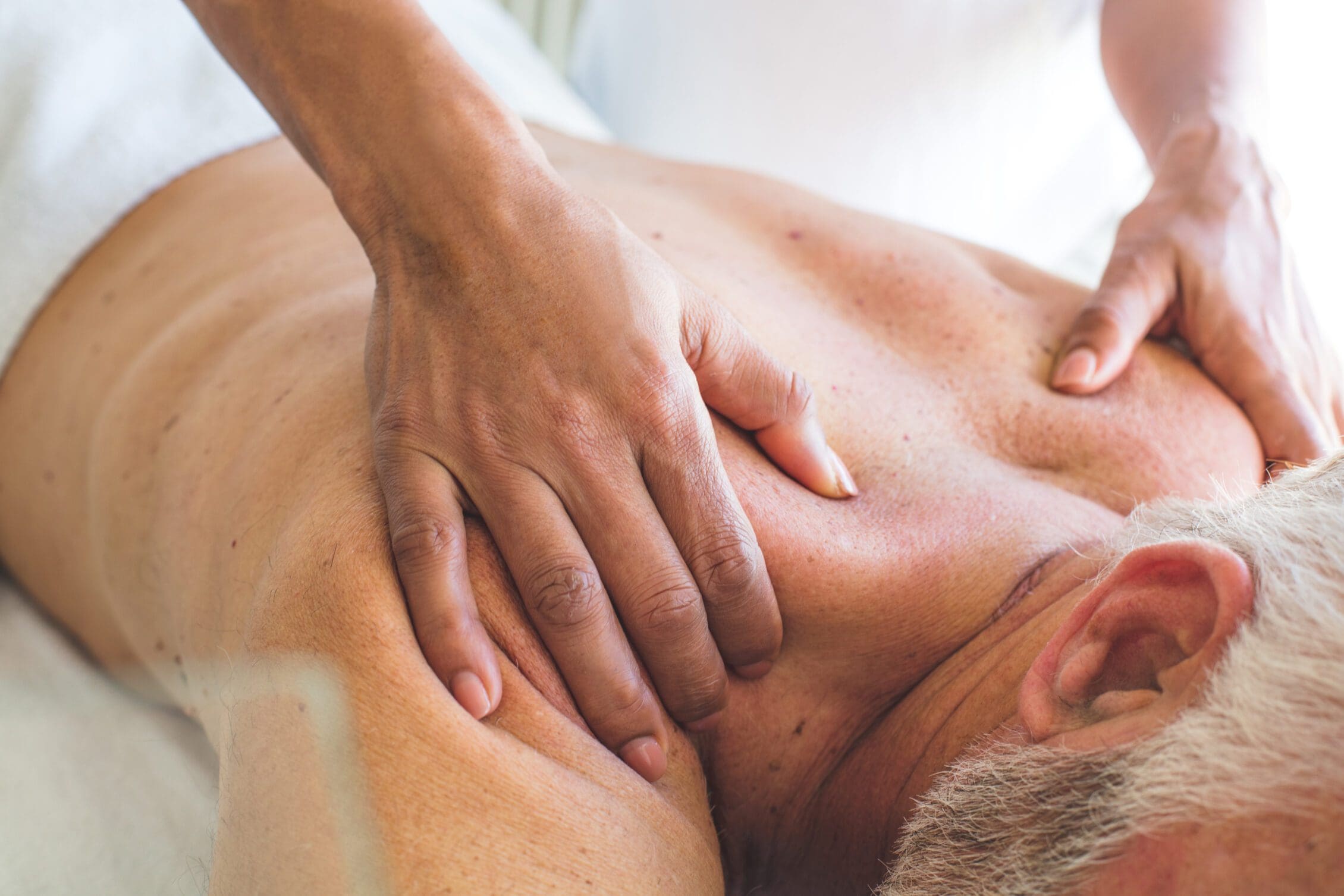When’s the last time you had a massage? Last week? Five years ago? Never? Therapeutic massage offers a long list of physical and mental health benefits. It can improve circulation, digestion, flexibility, sleep, and mood, and it has wonderful benefits for addiction recovery as well.
It’s true that massage can be expensive, usually between $70-100 per hour, but if you can adjust your budget to fit in a monthly massage, it will be worth the cost–and may save you money on other types of healthcare.
If you’re a senior adult or caring for a senior, you might be surprised to learn that massage can be an especially effective treatment for a variety of age-related health concerns. Let’s look more closely at how massage therapy can benefit older adults.
Benefits of Massage for Seniors
Massage has many benefits for senior adults. Healthline lists several research studies that demonstrate the following:
- Aging adults who received massages while living in residential care experienced enhanced health and well-being.
- Older adults in long-term care experienced positive and relaxed feelings after hand and foot massages.
- Massage helped reduce stress and aggressive behavior in adults with dementia.
According to American Senior Communities, massage has the following benefits as well:
- Decreases the pain due to osteoarthritis
- Improves sleep
- Decreases agitation due to Alzheimer’s disease
- Alleviates depression via touch (touch provides comfort, especially when the person has been deprived of it)
- Helps injuries or illnesses heal more quickly
- Improves range of motion in joints, muscles, tendons, and ligaments
Massage therapists who work with older clients know how to adjust their approach to fit the aging body’s needs. They may adjust the length of the session as well as where it happens and the techniques they use. Massage for elderly clients who are ill may take place in their own bed, chair, or wheelchair.
From one therapist who specializes in geriatric massage: “‘You keep your goals very moderate,’ says Jane Neumann, LMT, who specializes in treating older people with Parkinson’s disease (PD) or dementia. ‘You’re not curing their condition. You’re there to be present and to touch them with kindness. It is very moving work.’”
Finding a Massage Therapist
Looking at a massage “menu” may feel a bit overwhelming. There are many varieties of massage, and some of them may sound a little on the painful side (hot stone, deep tissue, shiatsu). How do you know what kind of massage will feel best and give you the most benefit?
The first step is to talk with your doctor and ask whether massage will be helpful for you. In rare cases, you may need to approach massage with caution, depending on certain health concerns. Your doctor will know what to recommend and may even be able to refer you to a particular therapist.
Then, focus on finding a massage therapist you like. Ask for recommendations from friends. Read reviews. Try more than one therapist. Each therapist has their own style and their own way of interacting with clients. Find someone you like, who asks for feedback and listens to you.
When you go to your appointment, explain any physical concerns you have–areas of tenderness, old or new injuries, etc. If at any time during the massage you feel discomfort or pain, speak up. Massage therapists can provide a wide range of pressure, and each client has different preferences for how “deep” they want the pressure to be. It’s perfectly appropriate for you to tell your therapist what you like.
Don’t Let These Common Fears Stop You
Removing clothing: While it’s true that many people remove most or all of their clothing for a massage, it’s fine to wear comfortable clothing. In fact, some types of massage (Thai, Shiatsu) are designed to be given when clients are fully clothed. Reflexology, sports massage, deep-tissue massage, craniosacral therapy, and more can all be done with clothing on.
(Note: if you decide to remove your clothing, rest assured that your therapist will ensure full coverage of private areas at all times.)
Getting hurt: As mentioned above, if your massage therapist uses too much pressure, ask them to go more gently. You may feel sore after a massage, the same as you might feel after a vigorous workout, but that will fade after a few days. Drinking water after massages will help rehydrate the muscles.
Embarrassing body marks/smells/noises: You’re not alone.
Everyone has body parts they don’t like or that smell funny or make weird noises. Massage therapists have seen it all, and you will soon learn that it’s not a big deal.
Massage can do wonders for your health, but it can’t solve everything. If you or a loved one are struggling with mental or behavioral health concerns, seek professional treatment geared toward diagnosis, stabilization, and whole-person care. At Raleigh Oaks in Garner, NC, we specialize in working with adults and senior adults, providing therapy, medication management, and a sustainable discharge plan to help patients get back to a fuller and less restrictive environment. Contact us today to learn more.






